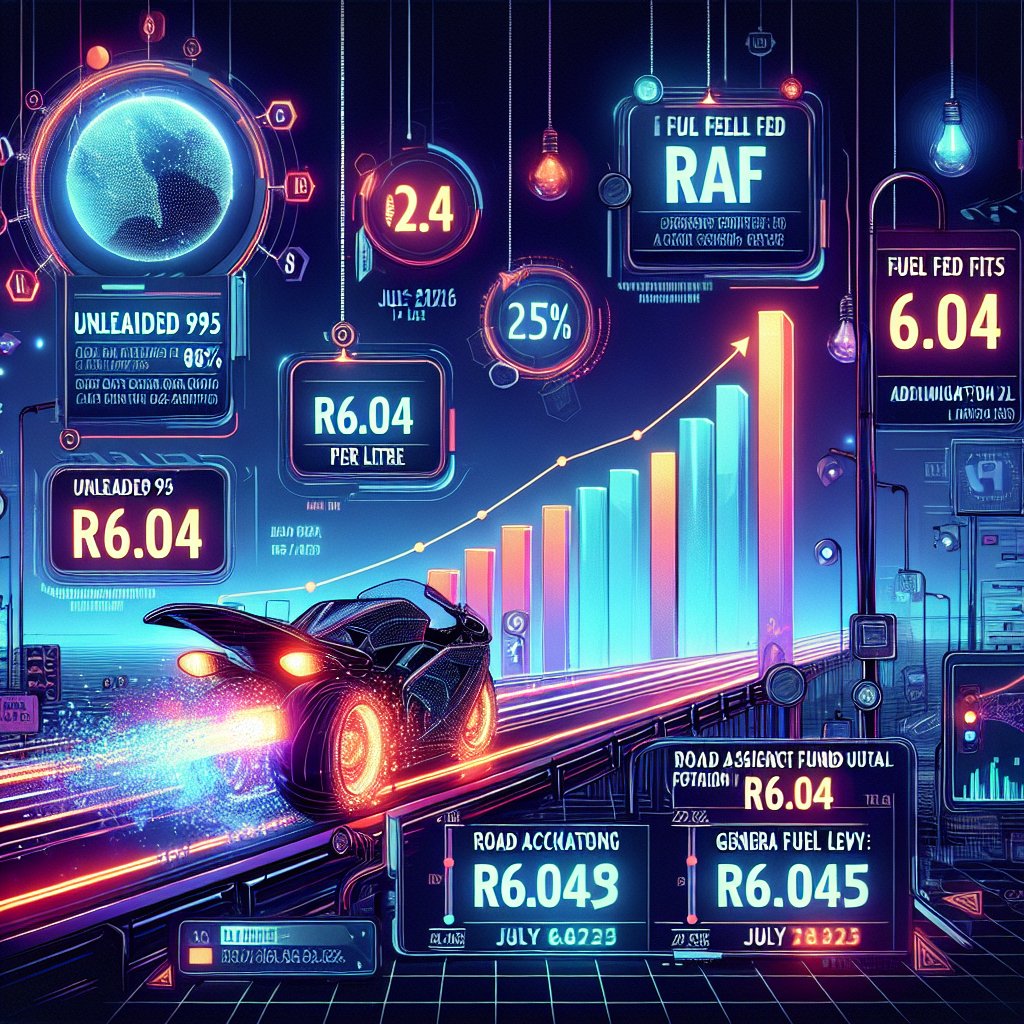Image created by AI
South African Motorists Could Save Big if Fuel Taxes Are Scrapped
South African motorists are grappling with significant costs that add up to their petrol bills, primarily due to the Road Accident Fund (RAF) tax and the General Fuel Levy (GFL). Reporting on the pressures on the consumer's wallet, it's discernible that these two levies are fundamental contributors, incorporating an additional R6.04 to the cost per litre of unleaded 95 fuel. This translates to about a 26% composition of July 2024's inland unleaded 95 prices.
In his 2024 budget speech, Finance Minister Enoch Godongwana addressed these levies, articulating the government's decision to refrain from raising the RAF tax and the GFL in the year 2024/25. The RAF tax is currently priced at R2.18 per litre, while the GFL stands at R3.86 per litre. The decision to maintain tax levels would result in a tax relief close to R4 billion, as communicated in the National Treasury's 2024 Budget Review.
However, Organisation Undoing Tax Abuse (Outa) CEO Wayne Duvenage casts doubt on the consistency of this measure by indicating an increase in the GFL from R3.42 in the 2022/23 period to R3.86 in 2023/24. This increment contradicts the government's stance of holding the tax rates steady.
Accounting for the harsh reality of living costs in South Africa, the impact of fuel prices cascades into food and transport costs, affecting overall consumer expenditure. On analyzing potential savings if the RAF tax and GFL were eliminated, a marked difference arises. For instance, owners of different vehicle sizes ranging from 45-litre capacity to 80-litre capacity could witness a decrease in refill costs by R271.80 to nearly R500 less per full tank, respectively.
These estimations leverage July 2024's unleaded 95 price of R23.26 to highlight what a tax-free scenario could look like for South African drivers. While these figures may present a hopeful outlook, it's crucial to note that other levies and taxes also impinge on fuel prices.
Furthermore, there is a glimmer of hope for a fuel price cut in August, as indicated by the Department of Mineral Resources' Central Energy Fund (CEF). Early predictions showed overrecoveries—implying a decrease in fuel rates—but as of 18 July 2024, the situation has shifted to slight under-recoveries.
The rand's performance against the dollar also significantly dictates fuel prices. The local currency experienced fluctuations, weakened by the political turmoil within the country and global events such as the attempted assassination of a US presidential candidate. However, Investec chief economist Annabel Bishop remains optimistic about the rand's recovery, which would potentially have a positive impact on future petrol prices.
Wrapping up, the continuous oscillation of fuel prices in South Africa is a complex interplay of economic factors, taxes, and international events. The discourse on the extent to which the RAF tax and GFL are influencing consumer expenditure draws attention to broader fiscal policies and their impact on everyday lives.










